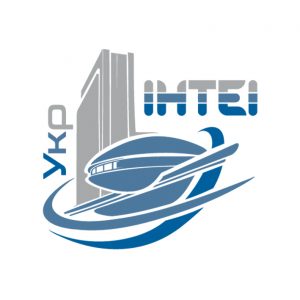http://doi.org/10.35668/2520-6524-2022-2-01
Huseynova Arzu Dogru qizi — D. Sc. in Economics, Professor, Department of Digital Economics, Institute for Scientific Research on Economic Reforms, Azerbaijan, Baku, H. Zardabi Str. 88, AZ1011; +994 (012) 492-59-04; arzu.huseynova@economy.gov.az; ORCID: 0000-0002-0981-9923
Mammadova Arzu Imamverdi qizi — PhD in Physics and Mathematics, Docent, Department of Digital Economics, Azerbaijan State University of Economics (UNEC), Azerbaijan, Baku, Istiqlaliyyat Str. 6, AZ1001; +994 (012) 492-59-04; m.arzu@unec.edu.az; ORCID: 0000-0002-6364-2786
Abilova Arzu Sabir qizi — Teacher, Department of Digital Economics, Azerbaijan State University of Economics (UNEC), Azerbaijan, Baku, Istiqlaliyyat Str. 6, AZ1001; +994 (012) 492-59-04; arzu_abilova@unec.edu.az; ORCID: 0000-0001-6879-8061
Hajikerimova Khatun Qedir qizi — Head Teacher, Department of Economics and Management Zagatala branch, Azerbaijan State University of Economics (UNEC), Azerbaijan, Zagatala Ahmad Racabli Srt. 4; +994 (055) 204-94-29; khatun.hajikerimova@unec.edu.az; ORCID: 0000-0003-2721-6613
Hasanova Heyran Rehim qizi — Head Teacher, Department of Digital Economics, Azerbaijan State University of Economics (UNEC), Azerbaijan, Baku, Istiqlaliyyat Str. 6, AZ1001; +994 (012) 492-59-04; h.hasanova@unec.edu.az; ORCID: 0000-0001-8814-3150
Mazanova Ophelya Idris qizi — Head Programmer LMS, Azerbaijan State University of Economics (UNEC) Azerbaijan, Baku, Istiqlaliyyat Str. 6, AZ1001; +994 (012) 492-59-04; ofelya.mazanova@unec.edu.az; ORCID: 0000-0001-7344-3492
DEVELOPMENT PERSPECTIVES OF CLOUD TECHNOLOGIES IN THE EDUCATION SYSTEM DURING THE PANDEMIC
Abstract. The article investigates the education system, as the main attribute of the knowledge economy, examines the changes in the education system of Azerbaijan. The samples were presented on the application of innovative technologies in higher education institutions of foreign countries in connection with the transition from traditional education to cloud. The article factors influencing the effectiveness of the cloud system have been considered, as well as the importance of studying the organization, economic bases, and principles of the application of e-learning management systems in educational institutions from methodological, theoretical, and practical sides have been determined. Economic development of cloud technologies, and examples from international experience of changes in the education system has been demonstrated.
Keywords: higher education, the education system, cloud technologies, innovative technologies, e-training, information technologies, e-learning.
REFERENCES
- Hasanova, Z., Huseynova, A., & Mazanova, O. (2019). The state of application of electronic systems in higher education in Azerbaijan. Socio-Economic Problems of Sustainable Development: 37th International Scientific Conference on Economic and Social Development. Baku, P. 528–531. Retrieved from: https://www.esd-conference.com/past-conferences.
- Huseynova, A., & Mazanova, O. (2021). Expanding the application of cloud and mobile technologies for information exchange in the use of e-learning management systems. Economic and Social Development. P. 99–103. Retrieved from: https://www.esd-conference.com/upload/book_of_proceedings/Book_of_Proceedings_esdFebruary2021_Online.pdf.
- Mazanova, O., & Huseynova, A. (2019). The State of Application of Electronic Education System in Azerbaijan. 5 the ınternatıonal conference on lıfelong educatıon and leadershıp for all ICLEL 2019. Baku, P. 1247–1254. Retrieved from: https://www.iclel.com/_files/ugd/d546b1_2eed58838ada410195db2edf750e8cc0.pdf.
- Elvin, T. (2006). Tekhnokratiya Glava 5 [Technocracy Chapter 5]. Kniga:Tret’ya volna [Book: The Third Wave]. Moscow. P. 781. [in Russ.].
- Makhlup, F. (1966). Proizvodstvo i rasprostraneniye znaniy v SSHA [Production and dissemination of knowledge in the United States]. Moscow. P. 35. [in Russ.].
- ADVANCED Distributed Learning. Sharable Content Object Reference Model (SCORM). (2012). Retrieved from: http://www.edu.ru/db/portal/e-library/00000053/SCORM.pdf.
- Peters, O. (1998). Learning and Teaching in Distance Education: Analyzes and Interpretations from an International Perspective. London.
- Sewart, D. (1987). Mass Higher Education: Where are We Going? Ortner G. E., Graff K. and Wilmersdoerfer H. Distance Education as two-way communication. Essays in Honor of Börje Holmberg, Frankfurt am Main, Berlin, Berne, New York, Paris, Vienna, P. 176.
- Mehdialiyev, A., Mazanova O., Ieee. (2013). On some problems of the creation and development of green technologies in Azerbaijan. 2013 7th International Conference on the Application of Information and Communication Technologies (Aict). P. 438–442. https://doi.org/10.1109/icaict.2013.6722804
- Helen Georgiou MSaAL. Retrieved from: http://www.tandfonline.com/loi/riie202017.
- Dean, M. D. (2016). A call to embrace social reading in higher education. Innovations in Education and Teaching International. 53. P. 296–305. https://doi.org/10.1080/14703297.2014.991934

